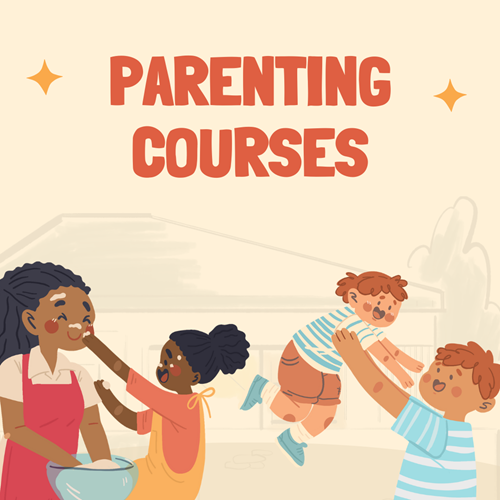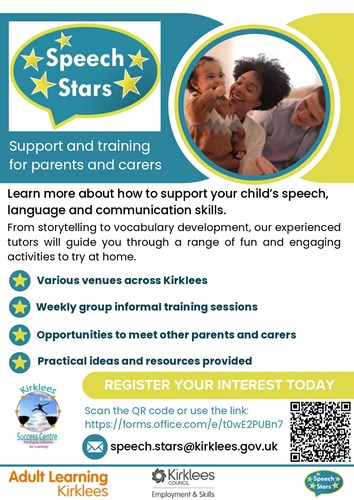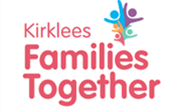Who is it for?
For parents carers of Children aged between 2-15 years
SEND version is suitable for parents/carers of children/young people with a diagnosis/on the path to a diagnosis of a SEND aged between 2 and 19 years.
The Family Links programme can be delivered as a generic parenting programme or adapted for parents/carers whose children have SEND needs. The SEND version the content is delivered in a different order to address the needs of SEND families, and peer support from the group is a major source of support.
Aims of programme:
The Nurturing Programme benefits both adults and children by promoting emotional literacy and emotional health, raising self-esteem, developing communication and social skills, teaching positive ways to resolve conflict, providing effective strategies to encourage co-operative responsible behaviour and managing challenging behaviour in children. It also offers insights into the influence of feelings on behaviour and encourages adults to take time to look after themselves. It is a fun and nurturing programme for parents.
What the sessions cover
- Giving Praise Week Zero – Establishing a Group
- Week One – Introducing the Nurturing Programme
- Week Two – The Question of Discipline
- Week Three – Rules, Rewards and Penalties
- Week Four – Ages and Stages in Child Development, Helping Children Grow Up
- Week Five – Personal Power and Self-Esteem, Choices and Consequences
- Week Six – Feelings…and what we do with them, Communicating Clearing using “I” Statements
- Week Seven – Kinds of Touch, Nurturing Ourselves
- Week Eight – Issues around Sex, Helping Children Stay Safe
- Week Nine – Behaviours to Ignore, Problem Solving and Negotiating
- Week Ten – Continuing the Family Journey
How is it delivered?
2 hour sessions per week for 10 weeks
6-10 parents/carers per group
2 facilitators per group
Group sessions include the use of media, Flip Charts, group-work activity, discussions and examples of games to play.
Parents/carers receive a programme handbook.
How can I find a group/ find out more?
Tel: 01484 456823
Further programme information is available from the programme developers:




